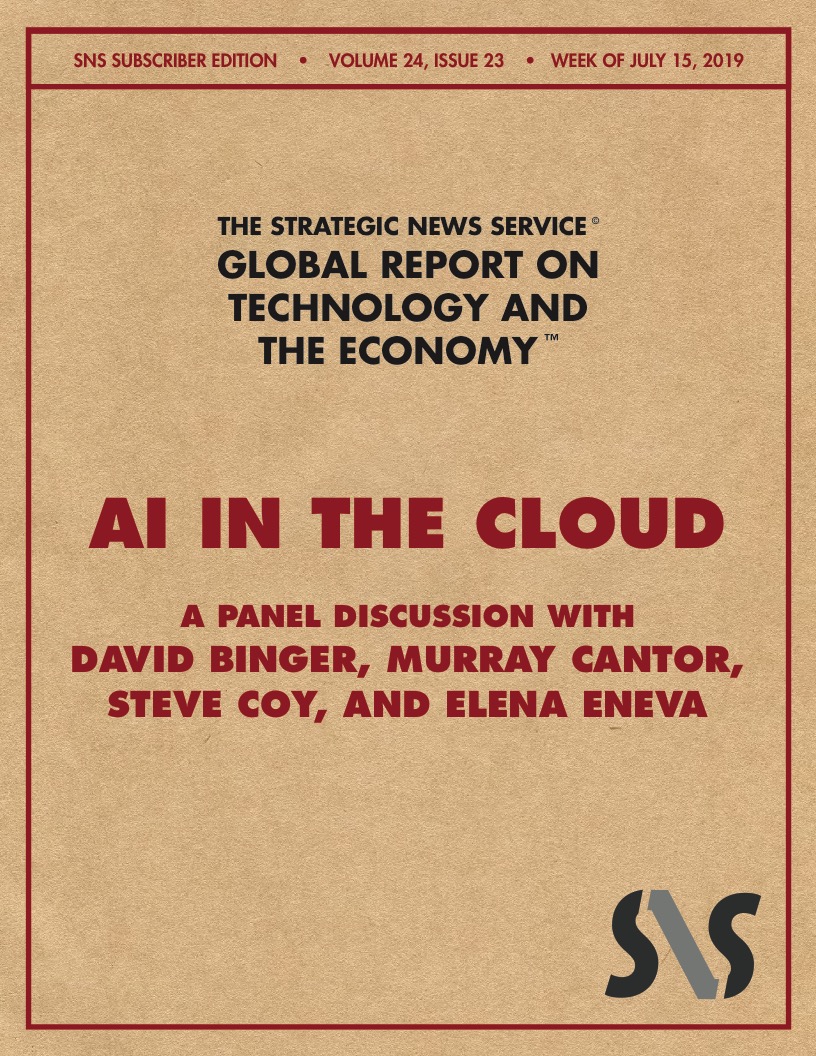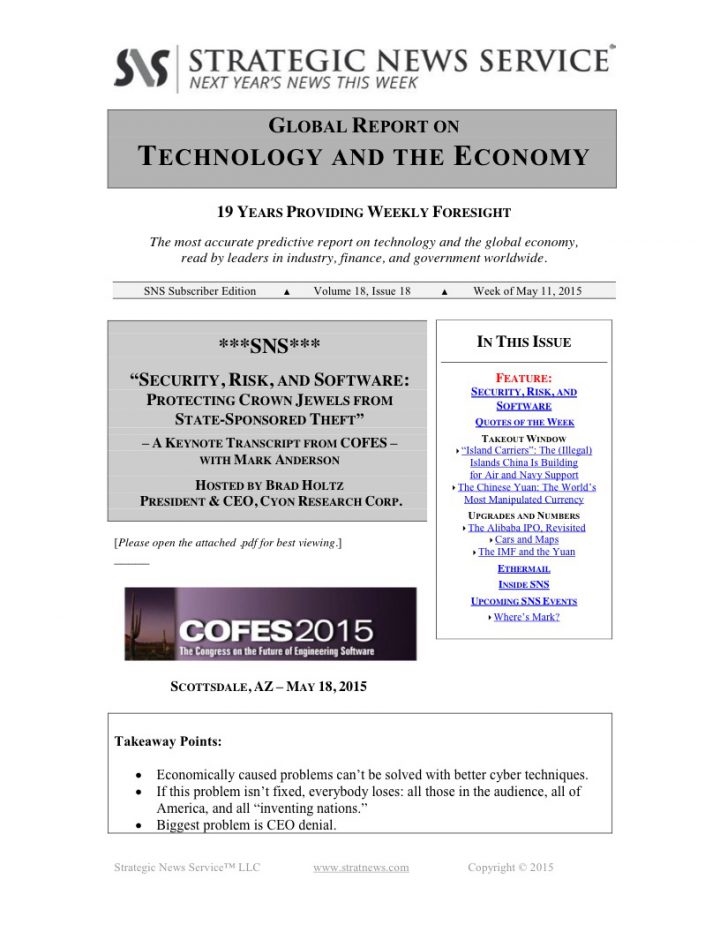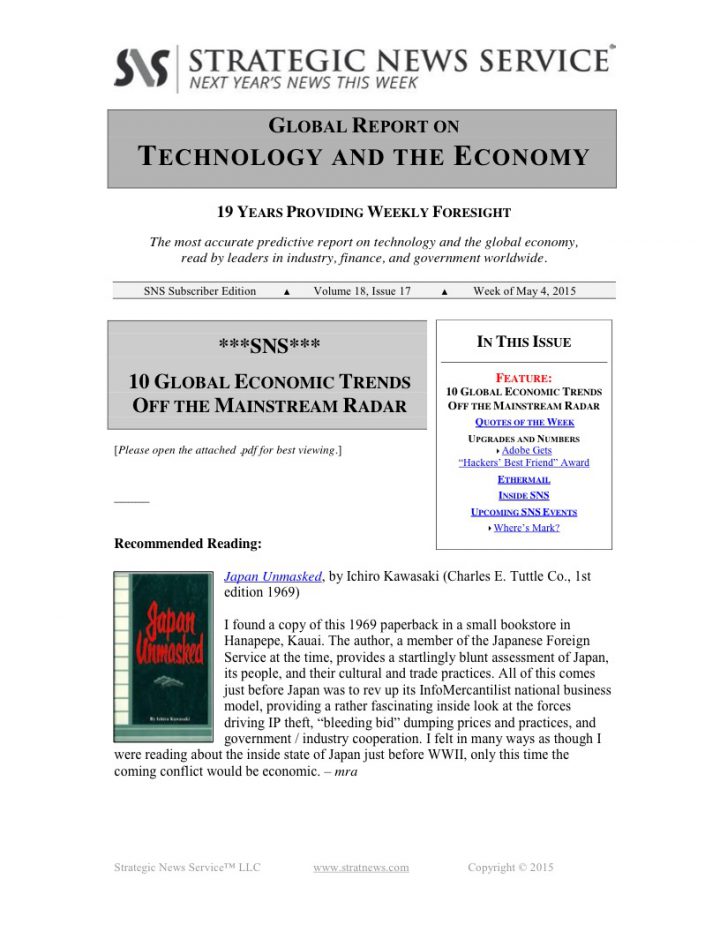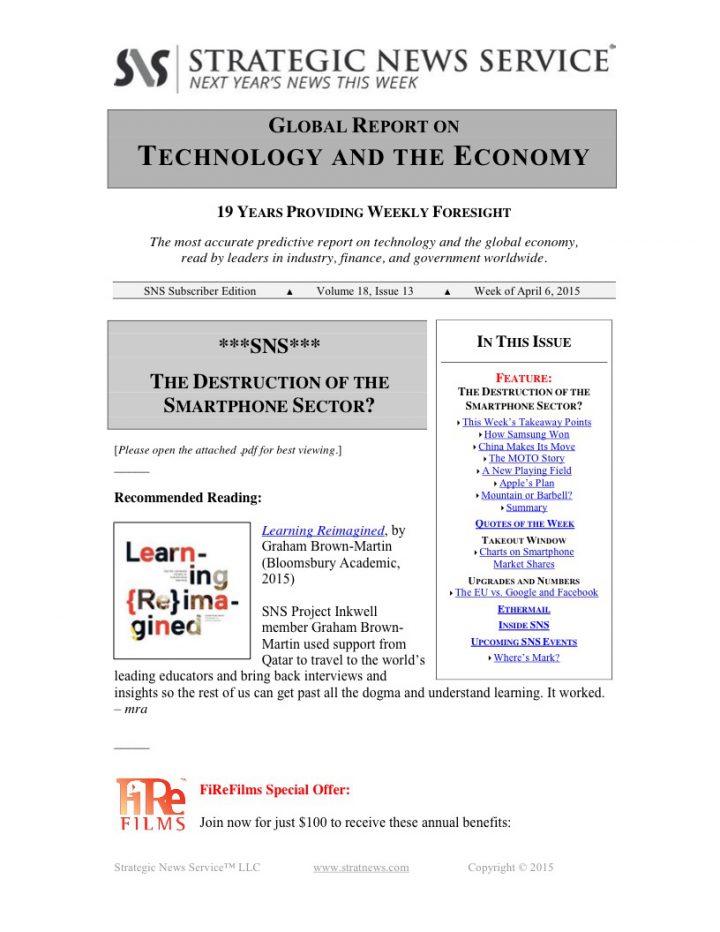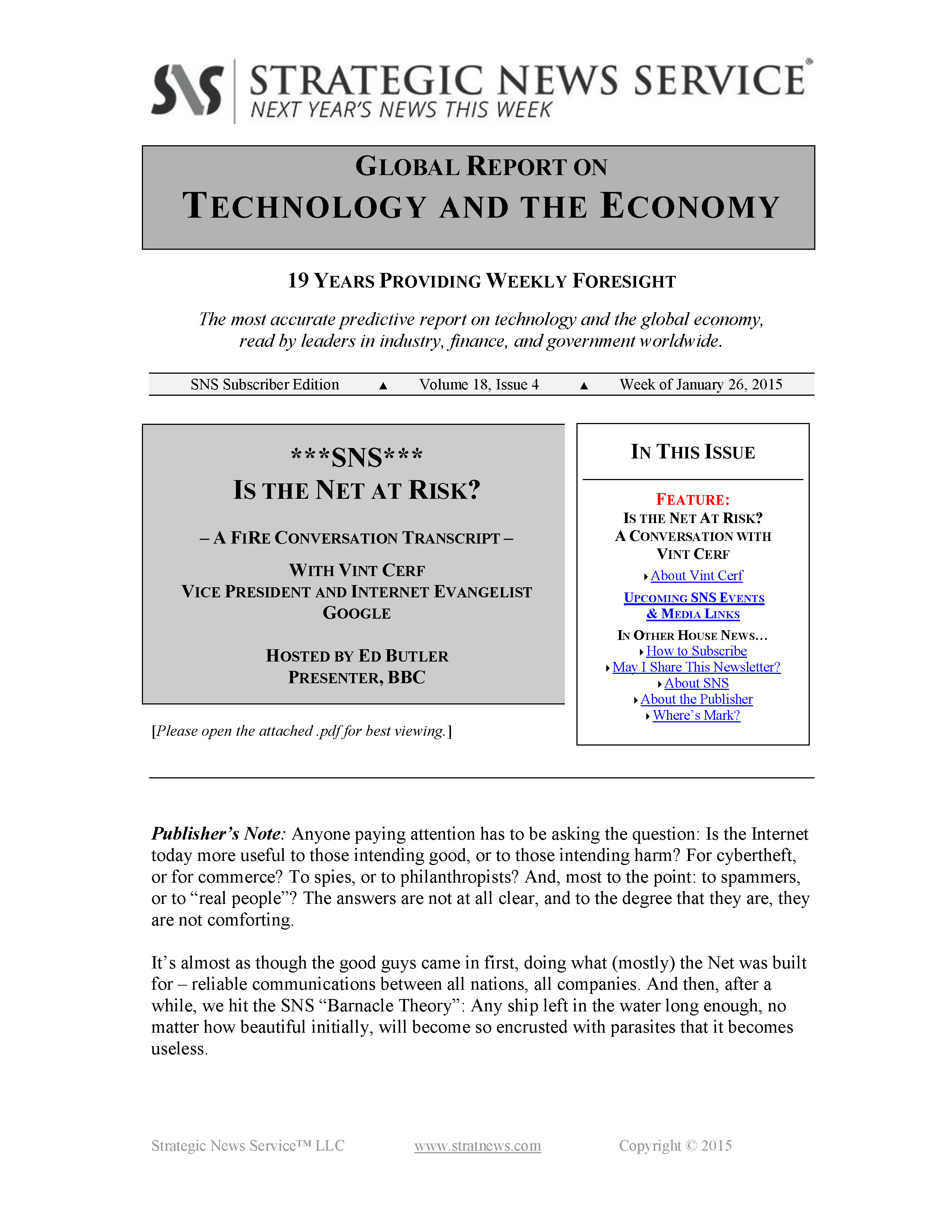In This Issue
Week of 7/15/2019
Vol. 24 Issue 23
SNS: AI in the Cloud
A Panel Discussion With David Binger, Murray Cantor, Steve Coy, and Elena Eneva
Moderated by Ed Butler
- About David Binger
- About Murray Cantor
- About Steve Coy
- About Elena Eneva
- About Ed Butler
—-
Publisher’s Note: Everyone knows that AI in the Cloud is perhaps the hottest subject in enterprise computing today – certainly it represents the differentiation feature leverage against the largest spend in the IT world. But what is it, how large is it, how fast is it growing, and what will it become as it matures?
Whether one is looking at the energy and heat restrictions on cloud-compute density and speed, or IoT and edge in local computing as the fast-growth part of the AI story, or how new megasystems will themselves learn, evolve, and learn to evolve, or the math that guides the future of AI – well, you would ask global experts in all of these areas.
So, at FiRe last year, this is exactly what we did. And to make sure the conversation was smart, fast, and to the point, we asked BBC senior reporter Ed Butler to moderate. The result is one of the best condensed discussions of all of the above related subjects. If your team or company depends upon cloud, you’ll want to read this week’s discussion. – mra
_______
AI in the Cloud
Amazon, Microsoft, and others are rushing to distinguish their cloud offerings by integrating the latest advances in AI, unlocking new possibilities and efficiencies for small- and medium-sized businesses the world over. Hear how the democratization of AI over the cloud will affect data use, analysis, business operations, and the economy.
Elena Eneva, Research Scientist in Artificial Intelligence, Accenture;
David Binger, CTO, Forced Physics; Steve Coy, CEO, TimeLike Systems;
and Murray Cantor, IBM Fellow and CTO, Aptage
Moderated by Ed Butler, Senior Broadcast Journalist, BBC
FiRe 2018 Conference
Thursday, October 11, 2018 – Stein Eriksen Deer Valley – Park City, Utah
_______
Ed Butler: AI in the Cloud – this is our theme today. We’ve had a long conversation about this beforehand, and all of us have slightly different views on what we think it’s going to lead us towards talking about. But I think it’s coherent; I hope you’ll agree.
Broadly speaking, of course, both are huge areas of investment right now. I’ve checked out a few numbers online. I don’t know how trustworthy they are, but the global AI market [will be] worth about $60 billion by 2020, with one projection. It’s almost there now; we’re getting very close. Public cloud industry: worth about $200 billion right now. Both … will be growing by multiples in the next 5 to 10 years.
So it’s a huge, gigantic area, and the extent to which the cloud, of course, is where AI is and should be is, I think, going to be part of our conversation.
But first of all, I’d like to introduce Elena Eneva. She’s a research scientist in artificial intelligence at Accenture. Elena, would you just kick us off, please, by saying where we’re at now, just in practical terms, for ordinary people – ordinary small- to medium-sized enterprises, perhaps. Where is AI taking us right now, in practical terms?
Elena Eneva: Well, it’s … taking us everywhere. It’s the new thing, the buzzword, that everybody wants to be doing AI, and everybody is doing AI, right? But also, that’s the future, because AI is kind of – you know, what is it? It’s math, it’s statistics, it’s pattern recognition, it’s everything underneath, right? It’s machine learning, in a broader sense, AGI.
But the interesting part, I think, for this panel – AI and the Cloud – is now where we’re going is there’s a new tool that’s available on the cloud, to everybody, and those are AI-enabling tools. So how is that different? What can we do now that we couldn’t do before?
The cloud has been around for a while, AI has been around for a while … But now that it’s so easy for – well, not so easy. Now that it’s easier to do it on the cloud, it’s sort of a game-changer, on all the levels that you can think of. Big companies, great huge amounts of data … they have access to the corresponding needed amount of computes, and they make the AI magic happen. Medium, small companies – the barrier to entry would’ve been much greater in the past, so this is something that fuels innovation, where a small startup can immediately try out an idea without having to buy a huge amount of computes on their own and invest in having a team of AI researchers.
Also, the other layer is education. How many people here have taken Udacity classes, or any other distributed courses? And how many of them have been around machine learning and AI? That’s kind of a big boom; lots of people are doing it.
The only reason why this is working out so well is because students have access to these cutting-edge compute capabilities and AI capabilities, and they’re learning. So this is something new that’s building the foundation of what’s going to be the future, right? These are the folks that will be creating the next wave of AI, or the next applications, the next big thing. So this access, this universal access to insights, now is very significant.
Butler: Steve Coy, I want to bring you in. Amazon, Google, Microsoft – they are the main players right now with the kind-of cloud-based AI tools, right? There was kind of an arms race going on between them …
Steve Coy: In the West.
…
Additional information
| Topics | |
|---|---|
| Focus Channels |
SKU: SNS-2019-07-18 - Need Help? Contact Us Leave Feedback
Categories: 2019 Issues, Back Issues
Tag: PDF Download

